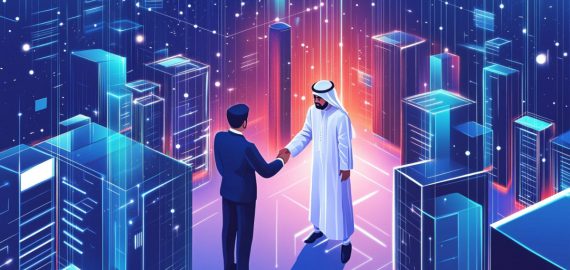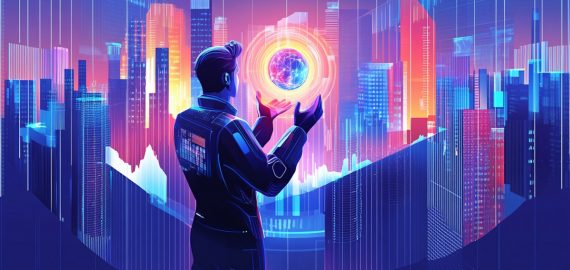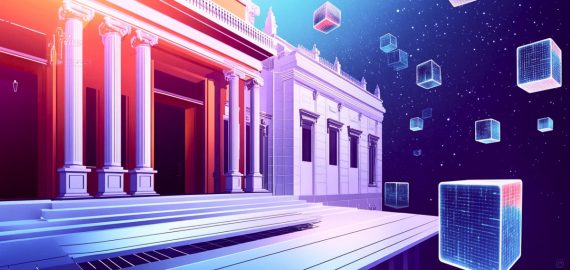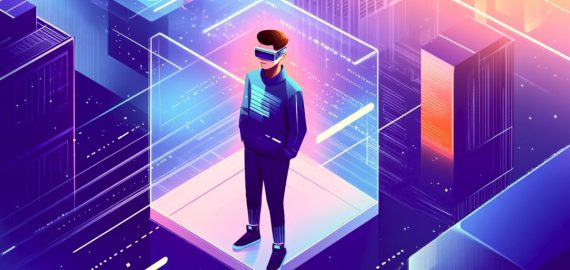7 Best Decentralized AI Platforms to Watch

In Brief
In this article, we highlight the top 7 decentralized AI platforms that are leveling the playing field.
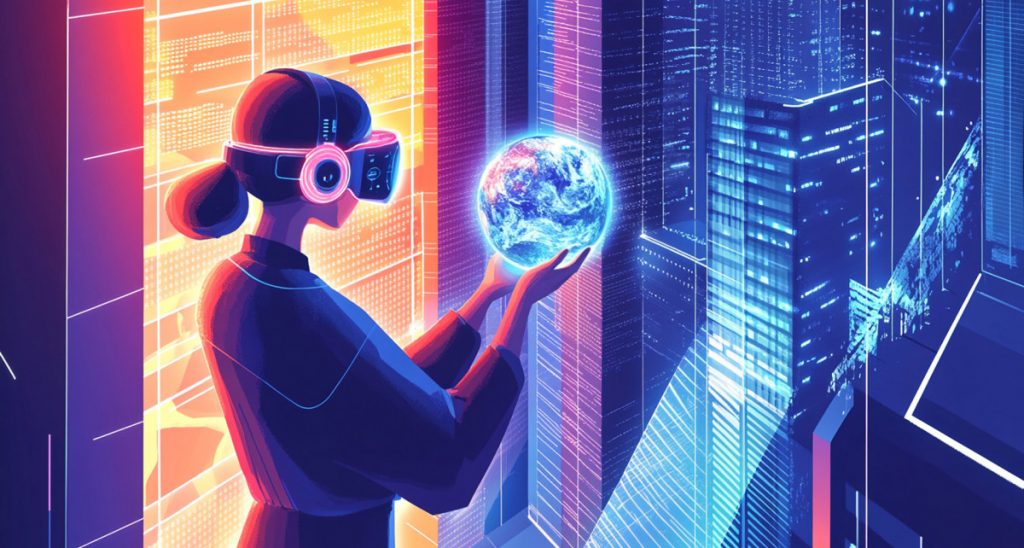
Artificial Intelligence (AI) innovations have witnessed tremendous growth since the debut of ChatGPT in November 2022. However, despite going mainstream, some significant bottlenecks continue to slow down the development and adoption of AI – one of the biggest challenges facing this nascent industry is data quality and control.
According to an estimate by Epoch AI, the total effective stock of human-generated public text data is around 300 trillion tokens; this data stock will likely be fully utilized by language models for training between 2026 and 2032. This looming data scarcity, coupled with concerns around transparency and cost are majorly a result of the centralization of most AI data pipelines.
On the brighter side, decentralized infrastructures are proving to be valuable in solving some of these pain points. In this article, we highlight the top 7 decentralized AI platforms that are leveling the playing field. These emerging platforms give AI builders and enterprises the ability to source verifiable, community-driven datasets without relying on centralized intermediaries.
OORT: The Complete Data Cloud for Decentralized AI
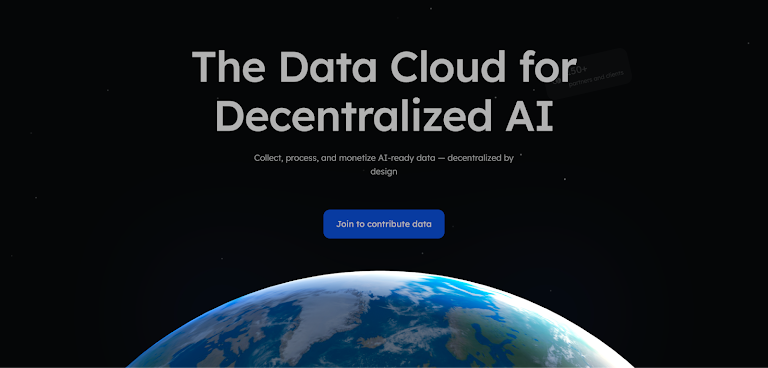
OORT is an end-to-end decentralized AI solution designed to enable both enterprises and individuals to collect, process and monetize AI data.
What stands out about this AI data cloud compared to its centralized counterparts is a global community approach; instead of relying on opaque data collection processes, OORT introduces a decentralized omni-chain data collection platform dubbed the OORT DataHub. This platform leverages contributions from a global community to deliver diverse, high-quality and verifiable datasets to tackle the existing shortcomings in AI data quality and control.
Supporting the OORT DataHub is a decentralized network, OORT Edge, which powers the storage and processing of the data collected; it does so through an edge node hardware device – Deimos.
As such, OORT ecosystem users have the opportunity to earn monetizable rewards by contributing towards the DataHub or becoming part of the edge network by hosting a node through the Deimos device. There are currently over 330,000 data contributors, 83,000+ nodes and 10,000+ daily users on this decentralized AI ecosystem.
Bittensor: The Decentralized Intelligence Network

Bittensor is another interesting decentralized AI platform; at the core, this blockchain-based ecosystem supports on-chain production of digital commodities, including AI inference, training and related infrastructure.
So, how does it work? Bittensor leverages the concept of subnets to introduce communities that produce these digital commodities at competitive rates. This is based on an incentivized model where the best miners (contributors) are rewarded for completing a certain task. Some of the tasks within an AI subnet can range from services such as training, prediction or specialized inference.
Bittensor’s network also includes validators whose role is to validate the work performed by the miners. This ensures that only quality services are rewarded through Bittensor’s incentive model – the ecosystem emits 7200 TAO tokens every day for this purpose. The allocations within the subnets are divided into three: subnet creator (18%), validators (41%) and miners (41%).
Bittensor’s decentralized subnets are a shift away from the centralized AI training process, where big tech has a monopoly on data collection and other AI services.
Ocean Protocol: Marketplace for AI-Ready Data
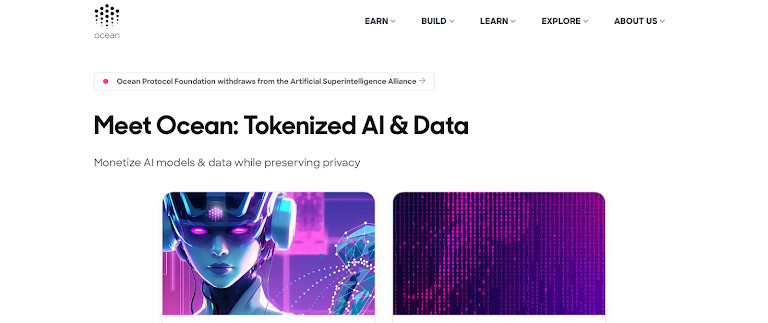
Ocean Protocol is one of the established players in this nascent area of innovation. Built as a decentralized protocol, this platform facilitates the two main components needed for AI advancement – data and compute.
The tech stack includes three main parts: Datatokens, Ocean Nodes and Compute-to-Data. With the Datatokens, Ocean Protocol users can tokenize their private data and make it available for model training while still preserving their privacy. An approach dubbed ‘token-gating’ whereby data owners can publish data services on the Ocean Protocol marketplace through a decentralized access control model.
As for the Ocean Nodes, these allow the monetization of idle computing resources. Device owners across the world can dedicate their idle computing power to support the Ocean Network in return for ecosystem rewards.
The Compute-to-Data is the hallmark feature of this ecosystem; it allows consumers (model trainers) to buy datasets against which they can run their models without the provider’s privacy being revealed. This is what gives Ocean Protocol an edge as a decentralized “marketplace for AI-ready data.”
SingularityNET: The Pioneer of Decentralized AI Services
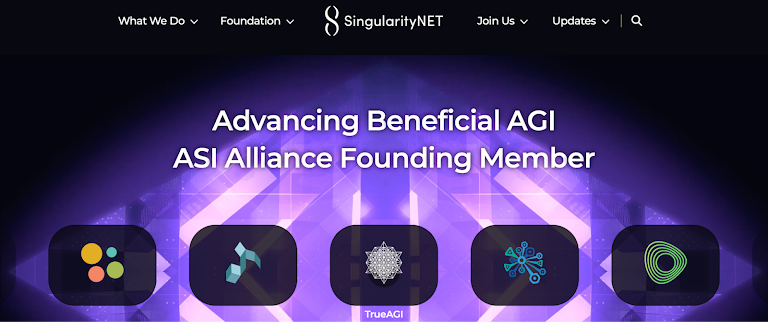
SingularityNET is a pioneer in the Decentralized AI space; the project was launched back in 2017, raising a $36 million ICO within a minute. Since then, it has evolved to become a reputable blockchain-based platform where users can create, share and monetize AI services.
Unlike its counterparts, which focus on datasets and raw compute, SingularityNET specializes in AI services such as API’s, models and agents that developers can monetize or purchase to support their development initiatives. This is possible through the platform’s native token $AGIX, which allows participants to pay for the AI services.
SingularityNET’s infrastructure model also pays close attention to interoperability, enabling the different services to call on each other. This creates an AI-supportive ecosystem where independent contributors can assemble complex pipelines.
Another standout feature of this particular project is the founder’s vision, Dr. Ben Goertzel, to advance Artificial General Intelligence (AGI) – an age where AI will possess the capability to perform any tasks that human beings can do and potentially surpass human intelligence across several domains.
Fetch.ai: Decentralized Agents and Data Economy
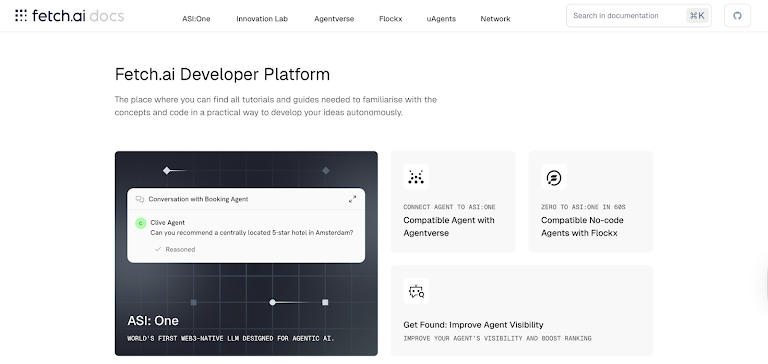
Fetch.ai is another novel innovation that operates within the upcoming agent economy powered by AI agents. This project is designed as a multi-agent platform, allowing autonomous software agents to interact, negotiate and transact data on behalf of users, organizations or devices while leveraging blockchain technology to secure the communication channels.
One of the main components of this ecosystem is the agent framework (AEAs). It is tasked with functions such as data collection and analysis, interaction with other agents or data sources, decisions, transactions and participation in machine learning or task optimization. One can think of them as digital twins acting on behalf of users.
What stands out about Fetch.ai is the enabling of real-time, dynamic data flows between autonomous agents. This is an advancement from traditional AI pipelines, which are not only centralized but also static in nature. For example, a traffic management system in a busy city can use AI agents to buy live traffic data from city sensors, thanks to the agent-based economy model.
Gensyn: Decentralized Compute for AI Training
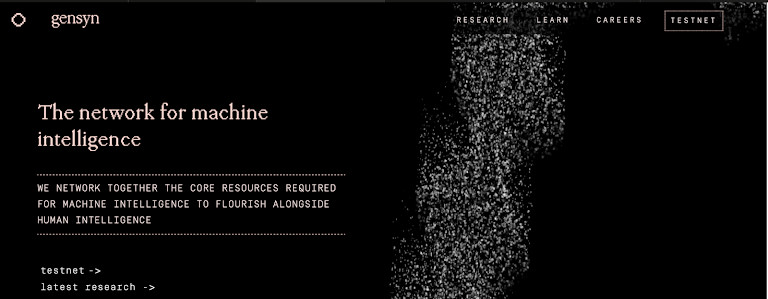
According to a recent report by McKinsey, projects show that data centres worldwide will require an estimated $6.7 trillion to keep up with the growing demand for computing power. Gensyn addresses this looming cost risk through its decentralized protocol, which focuses on machine learning computation.
At the core, Gensyn allows the aggregation of the world’s computing supply into a single network. This is possible through a decentralized framework that provides an opportunity for anyone with idle compute to allocate towards the network, supporting AI innovators with globally available compute that they can rent to scale the training of large models.
Gensyn’s ecosystem is made up of four foundational components: Consistent ML Execution, Trustless Verification, Peer-to-Peer Communication and Decentralized Coordination. All these facets work in tandem to enable decentralized, verifiable machine learning on a global scale.
It is also worth mentioning that this project is still in the early stages, with the Testnet currently available. It features three applications that users can try out: RL Swarm, BlockAssist and Judge.
Grass: Decentralized Data Crowdsourcing Network

Many times, when we pay for internet services, we end up not using all the allocated bandwidth. Grass, formerly Grassdata, introduced an innovative concept where global internet users can put their idle bandwidth to use.
The project brings this narrative to life through its distributed model that allows anyone to contribute and earn rewards through simple steps, turning the idle bandwidth into a valuable resource for AI training. Simply put, Grass operates as a decentralized physical network (DepIN) for web data access, whereby users can run nodes from their day-to-day devices, serving as data sources for AI and Web intelligence.
This permissionless and distributed approach is not only a game-changer in AI model training but also in putting everyday digital resources to use. Users can act as data providers to power an open network capable of competing with centralized web crawlers and data aggregators that are currently controlled by a handful of big tech companies.
Conclusion
As mentioned in the introduction, AI’s evolution and adoption have not been without their own unique set of challenges. This includes data control, quality and the increasing computation cost. However, as highlighted through the examples in this listicle, there has been significant progress in the decentralized AI innovation realm. These projects are a glimpse of what decentralized architectures have to offer AI and vice versa; it is a win-win for both blockchain and AI innovations.
Comparison Table for Decentralized AI Platforms
| Project | Main Focus | What Stands Out |
| OORT | Decentralized AI data cloud enabling users to collect, process, and monetize data | Community-driven DataHub and edge network (Deimos) with 330K+ contributors and verifiable datasets |
| Bittensor | Blockchain network for decentralized AI training and inference | Incentivized subnets rewarding quality AI outputs with daily TAO emissions |
| Ocean Protocol | Marketplace for AI-ready data and compute | Compute-to-Data privacy model allowing secure data sharing without exposing raw datasets |
| SingularityNET | Marketplace for AI services and APIs | Monetization of interoperable AI agents; pioneering vision for Artificial General Intelligence (AGI) |
| Fetch.ai | Multi-agent AI economy for autonomous data exchange | Real-time data negotiation through autonomous agents (AEAs) |
| Gensyn | Decentralized compute network for machine learning | Trustless verification and aggregation of global compute supply for AI training |
| Grass | Decentralized bandwidth and data crowdsourcing network | Converts idle internet bandwidth into AI-training data resources |
Frequently Asked Questions
What is decentralized AI?
Decentralized AI refers to artificial intelligence systems that are built on distributed ecosystems such as blockchain or peer-to-peer infrastructures. Global communities take up the role of data, compute and model training as opposed to the centralized setting where big corporations control all these functions.
How is decentralized AI different from traditional AI platforms?
Unlike their traditional counterparts, which rely on centralized data centres and opaque data collection techniques, decentralized AI distributes data sourcing, compute power and model training to diverse ecosystem participants. This improves transparency, security and inclusivity.
Why is data quality control important for AI development?
The quality of data has a direct impact on the accuracy and fairness of AI models. As such, AI data pipelines need to be verifiable, sourced ethically and shared securely.
How do participants earn in decentralized AI ecosystems?
There are several ways to earn from these ecosystems, including the contribution of valuable resources such as data and computing power. Most DeAI platforms have incentive mechanisms where users can receive monetizable rewards.
Which decentralized AI projects are currently leading the space?
Prominent players include OORT (data cloud), Bittensor (AI intelligence network), Ocean Protocol (AI-ready data marketplace), SingularityNET (AI service hub), Fetch.ai (agent economy), Gensyn (decentralized compute), and Grass(data crowdsourcing network).
Disclaimer
In line with the Trust Project guidelines, please note that the information provided on this page is not intended to be and should not be interpreted as legal, tax, investment, financial, or any other form of advice. It is important to only invest what you can afford to lose and to seek independent financial advice if you have any doubts. For further information, we suggest referring to the terms and conditions as well as the help and support pages provided by the issuer or advertiser. MetaversePost is committed to accurate, unbiased reporting, but market conditions are subject to change without notice.
About The Author
Gregory, a digital nomad hailing from Poland, is not only a financial analyst but also a valuable contributor to various online magazines. With a wealth of experience in the financial industry, his insights and expertise have earned him recognition in numerous publications. Utilising his spare time effectively, Gregory is currently dedicated to writing a book about cryptocurrency and blockchain.
More articles

Gregory, a digital nomad hailing from Poland, is not only a financial analyst but also a valuable contributor to various online magazines. With a wealth of experience in the financial industry, his insights and expertise have earned him recognition in numerous publications. Utilising his spare time effectively, Gregory is currently dedicated to writing a book about cryptocurrency and blockchain.















































